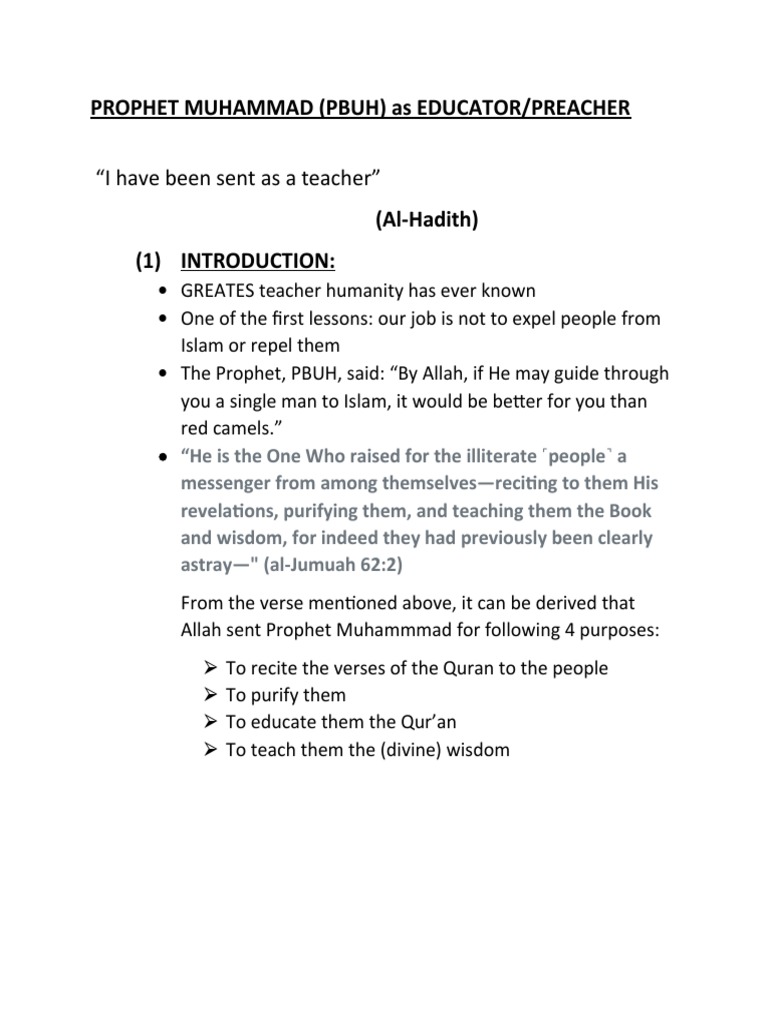The teachings of the Bahá’í Faith encompass a vast array of principles that elucidate the role of the Prophet in the educational framework of humanity. Central to Bahá’í thought is the notion that Prophets serve as primary educators, imparting divine wisdom that transcends the limitations of time and culture. This perspective provides the basis for understanding the transformative power of educational principles rooted in the teachings of the Prophets, who are viewed as facilitators of spiritual and moral progression.
At the heart of Bahá’í teachings is the concept of the essential unity of all religions. This unity posits that each Prophet, regardless of the era or geographical location, contributes to a greater educational continuum. By recognizing the harmony of divine revelation, the Bahá’í Faith invites individuals to appreciate the shared moral imperatives espoused by these spiritual luminaries. For instance, the teachings of Bahá’u’lláh, the founder of the Bahá’í Faith, emphasize that the essence of all religions revolves around the promotion of love, justice, and the betterment of humanity.
Furthermore, Bahá’í teachings highlight the role of Prophets as not just spiritual leaders but also as educators in a broader sense. They do not merely provide religious doctrines; rather, they present a comprehensive educational framework that encompasses material, ethical, and spiritual dimensions. This triadic approach to education underscores the importance of fostering holistic development in individuals, encouraging them to cultivate both intellect and character. By placing an emphasis on the cultivation of virtues, such as honesty, kindness, and generosity, the educational principles derived from the Prophets serve as a foundation for personal and collective transformation.
The Bahá’í view of the educational role of the Prophet is further exemplified through the institutions of learning established by the Faith. These institutions are not just conventional schools; they embody the principles of moral upliftment, social cohesion, and the advancement of knowledge. A distinctive aspect of Bahá’í education is its commitment to inclusivity. Education is viewed as a fundamental human right, which must be accessible to all, irrespective of gender, race, or socio-economic status. It is through such inclusivity that the teachings of the Prophets can be effectively disseminated, fostering an environment where diverse perspectives are welcomed and celebrated.
Moreover, the contributions of the Prophets extend into the realms of science and technology. Bahá’u’lláh’s teachings assert that true education cannot be confined solely to spiritual or moral dimensions; it must integrate scientific knowledge and practical skills. This synthesis is vital, as it prepares individuals to navigate the complexities of the modern world while remaining grounded in ethical principles. Historical instances illustrate how the insights offered by the Prophets have prefigured scientific advancements. The recognition of the interconnectedness of spiritual and material learning resonates deeply within the Bahá’í educational paradigm.
In examining the Prophet as a primary educator, one must also consider the implications of their teachings for contemporary educational practices. The wisdom encapsulated in the sayings and actions of the Prophets presents educational models that prioritize critical thinking, creativity, and collaboration. It advocates for an educational approach that transcends rote memorization, focusing instead on the development of analytical skills and moral reasoning. Through such methodologies, learners are empowered to become architects of their destinies and catalysts for societal change.
The emphasis on service to humanity emerges as a recurrent theme within Bahá’í teachings. The Prophets exemplify the ideal of selfless service—an essential element of the educational journey. They inspire individuals to contribute positively to their communities and to engage in endeavors that promote the welfare of all humankind. Inherent in this principle is the notion that education must not be viewed as a mere acquisition of knowledge; rather, it must be a transformative process that instills a sense of responsibility and civic duty in the hearts of learners.
In the pursuit of knowledge, the Bahá’í Faith underscores the significance of personal spiritual development. Knowledge, while essential, is deemed incomplete without the infusion of spiritual understanding. This duality is essential for effective learning. Prophetic teachings illuminate the path to self-knowledge, which is a cornerstone of both personal and communal growth. Consequently, the educational journey becomes a means to uncover one’s purpose and to recognize one’s interconnectedness with others.
Lastly, the legacy of the Prophets informs not only individual pursuits but also collective aspirations. Their teachings foster a sense of global citizenship and encourage the development of inclusive societies. The Bahá’í commitment to unity and peace is manifested in educational programs aimed at increasing understanding and respect among diverse cultures. This global perspective underscores the importance of equipping individuals with the tools necessary to address the challenges of a rapidly evolving world.
In conclusion, the role of the Prophet as a primary educator of humanity, as articulated within Bahá’í teachings, encompasses a multifaceted view of education. By emphasizing the interplay between spiritual and material knowledge, inclusivity, personal development, and service, the Bahá’í Faith offers a compelling vision for a more enlightened and harmonious society. Through the teachings of the Prophets, humanity is invited to embark on an educational journey that not only enriches the individual but also elevates the collective, ultimately fostering a world characterized by peace, justice, and unity.
